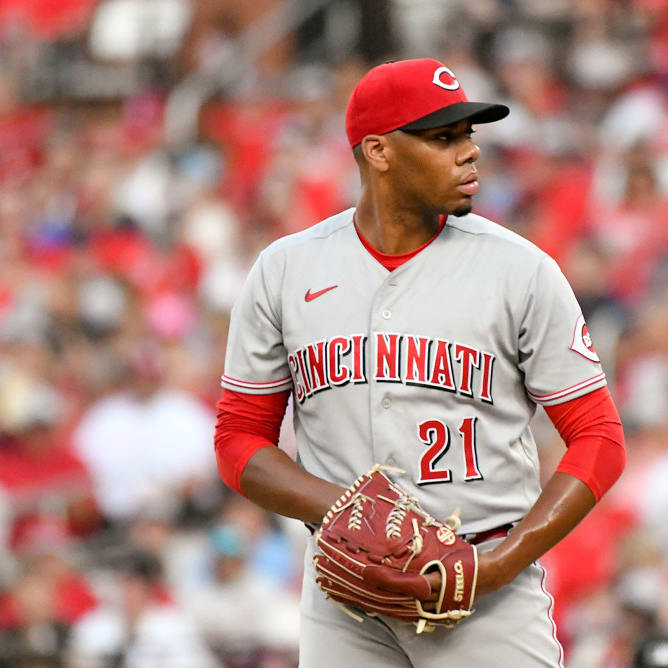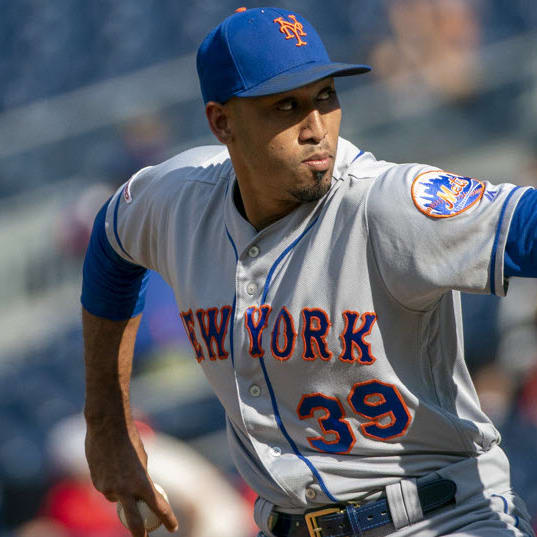This article is part of our DFS Baseball 101 series.
Spring training is underway and fantasy baseball players are prepping for their season-long drafts, but it's also time for your daily fantasy baseball preparation. Over the next month I will have a series of articles geared toward helping beginners and first-time DFS players.
The first installment of this series focused on how to get started, what to think about and how to prepare for the season. Last week, we covered some basic research for building a strategy for choosing hitters. Most fantasy players jump into DFS without a plan and expect it to go just like season-long. You might be a successful season-long player, but there is a learning curve with DFS and EVERYONE goes through it.
This week's article focuses on starting pitching research and how to build a research routine in less than one hour per day.
Research
The first thing you need to do is understand the profile of players that you want in your lineup. We want to research the players and scenarios that are optimal for cash lineups.
For pitchers, I am looking at these three characteristics: Command, Control, Risk (ability to strike batters out, keep runners off base, keep the ball in the park, go deep in games and get the win).
Let's start by pulling stats (Fangraphs) and setting up an Excel spreadsheet with 2015 totals and 2013-2015 overall totals for xFIP, wOBA, K% and K/BB%(versus left-handed hitting, right-handed hitting, home and road). You have to pull each one separately and then click on Export Data to bring it over to Excel. The reason I look at both time periods is that players change teams/parks/leagues and skills change year to year. After you have the data, sort by player name and take note of each pitchers' differences they have against each handed batter and their home/road splits. You want to become familiar with where each pitcher ranks versus the rest of the league.
The next thing I do is create an optimal profile for each player with two columns: Home/Road/Neutral/None and vs. LHP/RHP/Both/None. This will take a while, but you will be learning as you go and understanding the scenarios for when you should take each player in a cash game. There will be some players that you will never use in cash games because their pitching profile shows they are highly susceptible to a disaster outing (Trevor Bauer would be an example). While Bauer always has high strikeout potential, he walks too many batters, gives up too many fly balls and home runs. One of the best cash game pitchers last year was Dallas Keuchel, so let's take a deeper dive.
Here is Keuchel's profile based on his splits: he scored at least 12 fantasy points on FanDuel in 14 of his 18 starts at home. 12 points is my target for cash games. NOTE: FanDuel has changed their scoring for 2016 and the pitching stats are all 3x higher. This doesn't impact anything on the strategy side, as the ratios are the same. 36 is the target score now.
Average Innings Pitched Per Start – 7.03 (second)
Home – 7.17
Road – 6.01
wOBA
vs LHB - .198
vs RHB - .269
Home – .213
Road – .304
xFIP Overall – 2.75 (fifth among starting pitchers)
vs LHB – 2.19
vs RHB – 2.92
Home – 2.20
Road – 3.44
K/BB% Overall – 4.24%
vs L – 8.33
vs R – 3.69
Home – 4.96
Road – 3.35
K% Overall – 23.7%
vs L – 25.9%
vs R – 23.1%
Home – 28.0%
Road – 18.6%
Taking Keuchel at home would be an example of a cash game DFS profile because he was superior at home, kept the ball on the ground and got a high number of strikeouts, especially against left-handed hitters. He performed significantly above his averages in that scenario and was extremely consistent. You would not want to use him on the road against a heavy right-handed hitting team like the Blue Jays.
There is no hard-set rule on the classification, it is more for you to get comfortable learning the profile of each pitcher, so when you do your daily research, it comes to you immediately. Do this for every projected starting pitcher coming into the season. It will take a while, but you need to know right away when a starting pitcher is in the optimal situation.
This is an example of research you can do now before the season starts. Remember, it is all about cutting your daily research time down to one hour (15-30 minutes the night before and 30-45 minutes on the day of the contests).












